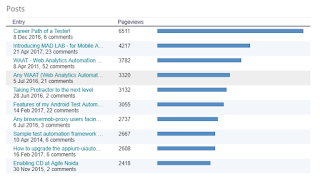What an amazing time speaking at the first AppiumConf 2019 in Bangalore, India. I spoke about my experiences in setting "Quality & Release Strategy for Native Android & iOS Apps"
Abstract:
Experimentation and quick feedback is the key to success of any product, while of course ensuring a good quality product with new and better features is being shipped out at a decent / regular frequency to the users.
In this session, we will discuss how to enable experimentation, get quick feedback and reduce risk for the product by using a case study of a media / entertainment domain product, used by millions of users across 10+ countries - i.e. - we will discuss Testing Strategy and the Release process an Android & iOS Native app - that will help enable CI & CD.
To understand these techniques, we will quickly recap the challenges and quirks of testing Native Apps and how that is different than Web / Mobile Web Apps.
The majority of the discussion will focus on different techniques / practices related to Testing & Releases that can be established to achieve our goals, some of which are listed below:
- Functional Automation approach - identify and automate user scenarios, across supported regions
- Testing approach - what to test, when to test, how to test!
- Manual Sanity before release - and why it was important!
- Staged roll-outs via Google’s Play Store and Apple’s App Store
- Extensive monitoring of the release as users come on board, and comparing the key metrics (ex: consumer engagement) with prior releases
- Understanding Consumer Sentiments (Google’s Play Store / Apple’s App Store review comments, Social Media scans, Issues reported to / by Support, etc.)
Slides:
Quality & Release Strategy for Native Android & iOS Apps from Anand Bagmar



























